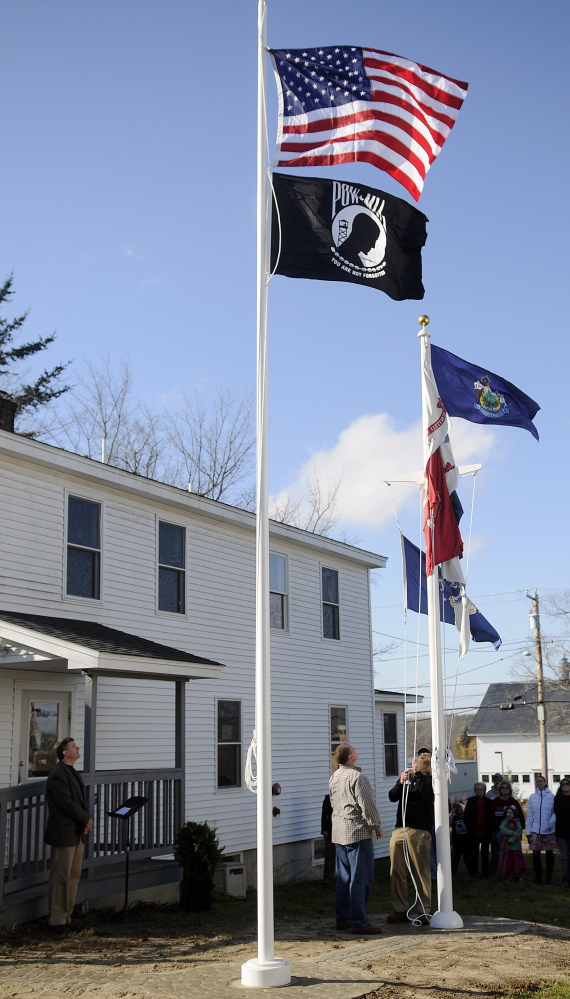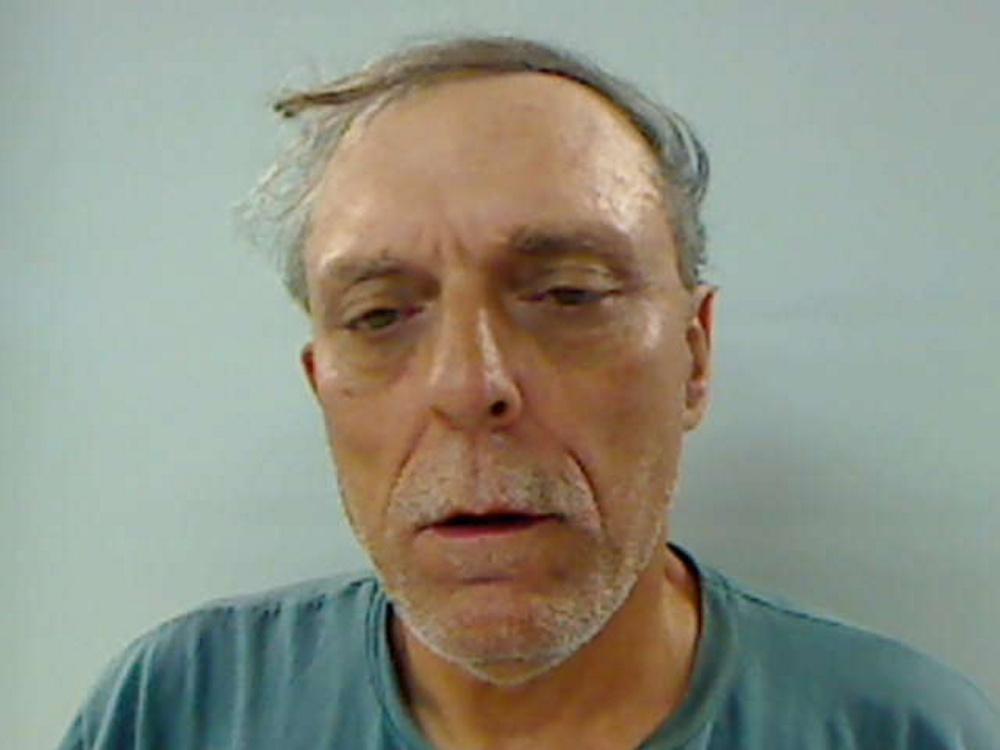BANGOR — Two Augusta police officers denied Wednesday that excessive force was used in the arrest of Michael J. Albert Sr. at an Augusta shelter for homeless veterans on Aug. 4 2012.
The testimony of Augusta Patrol Officer Benjamin Murtiff and Sgt. Vicente Morris came on the second day of a civil trial in federal court.
Albert, now 60 and living in Bangor, sued Augusta police, maintaining his civil rights were violated that day as police handcuffed him after he allegedly refused multiple requests to leave the shelter that night.
Albert spent all afternoon Tuesday testifying, telling jurors how his left rotator cuff was torn during that arrest and the pain he suffered prior to having surgery in July 2014 to repair the tear.
Murtiff and Morris are the only remaining defendants in the federal civil lawsuit which had initially included the police chief and other unnamed officers.
Murtiff and Morris said they used techniques taught at the Maine Criminal Justice Academy in taking Albert to the ground and then handcuffing him and that they observed no injuries on Albert when Murtiff drove Albert to the jail almost immediately afterward.
Both officers said Albert got up abruptly from a picnic table outside the veterans shelter and moved toward the shelter manager, Christian Carson, who was telling Albert he had to leave the premises after he had shouted at another resident.
“If he would have left when we asked him to leave the first or second time, we would have allowed him to leave and go about his business for the rest of the night,” Murtiff testified.
Morris testified that Albert’s response to being told to leave was to argue and that Morris was concerned Carson would be assaulted.
Morris said Albert resisted efforts to place him under arrest and that police used only the force necessary to overcome that. Morris said he is a member of the police department’s special response team, taking an extra 120 hours a year in training on the use of force and many other requirements of the Maine Criminal Justice Academy, which certifies police officers in Maine.
Morris said that when Carson told Albert to leave, Albert responded by telling Carson he “wasn’t man enough to make him leave.”
Albert testified Tuesday he indicated he would leave and got up slowly from the picnic table and took a step away from Carson and Murtiff. Albert said police then grabbed first his right arm and took him to the ground.
“When they walked me around, I didn’t expect they were going to throw me down,” Albert said.
He said his left arm was lifted and pulled behind him while he was on the ground under the weight of several officers.
Albert is asking for compensation for $23,349.58 in medical bills, $25,000 for loss of enjoyment of life and $175,000 for general pain and suffering, according to court documents filed by his attorney Stephen Packard.
Albert is not seeking lost wages. He testified he had been receiving Social Security disability since 2006 and worked occasionally as a trucker.
A criminal trespass charge against Albert was dismissed Oct. 9, 2012, by the district attorney’s office on the basis that Murtiff was unavailable as a witness because he was in training.
Augusta Patrol Officer Anthony Drouin, who was also at the scene but who is not a defendant, testified that he helped Morris control Albert’s right arm and place it behind his back to be handcuffed while Murtiff did the same with the left arm.
Drouin said Albert was asked “several times, at least three times to leave on his own or he would be under arrest.”
He said Albert’s demeanor at the time was “uncooperative. He wouldn’t listen to anything we had to say.” Drouin said Albert refused to leave unless he was given a reasonable explanation for why he was being asked to leave.
Drouin said three Augusta police officers were at the shelter dealing with Albert that night. Albert testified Tuesday that there were four officers.
On Wednesday morning, a witness read into the record sworn testimony of Dr. Jacob Brooks, who performed surgery to correct the rotator cuff tear in July 2014. Brooks’ deposition was taken Monday night. Both the plaintiff’s attorney, Stephen Packard, and a defense attorney, Kasia S. Park, read the questions they had posed to the doctor.
Brooks indicated in his statement that Albert had recovered well.
Following brief testimony by Debra Hook, a case manager with Preble Street Veterans Housing Service in Bangor, Packard told Magistrate Judge John Nivison that the plaintiff’s initial presentation of evidence was complete.
The defense portion began almost immediately, following an extended session with attorneys and the judge at the side of the bench farthest from the jury. As they conferred, white noise was played over the speaker system to mask their words.
Albert several times called to get Packard’s attention as Packard was questioning the officers and at one point the judge told Albert to control his emotions.
Testimony ended at 12:15 p.m. Wednesday, and Nivison told jurors that the defense had one witness scheduled to testify Thursday morning, and that he expected to go to closing arguments after that.
In his opening statement, defense attorney Edward Benjamin — representing the police officers — told jurors they would be hearing from Carson as well as the officers on the scene.
“Four sober individuals will tell you what happened that night,” Benjamin said. He suggested they believe Carson, who was shelter manager that night and is studying for a master’s degree in social work.
“The last thing he would have wanted to do is kick someone out of a homeless shelter,” he said.
“He’s there to keep everyone safe.”
Betty Adams — 621-5631
badams@centralmaine.com
Twitter: @betadams
Send questions/comments to the editors.





Success. Please wait for the page to reload. If the page does not reload within 5 seconds, please refresh the page.
Enter your email and password to access comments.
Hi, to comment on stories you must . This profile is in addition to your subscription and website login.
Already have a commenting profile? .
Invalid username/password.
Please check your email to confirm and complete your registration.
Only subscribers are eligible to post comments. Please subscribe or login first for digital access. Here’s why.
Use the form below to reset your password. When you've submitted your account email, we will send an email with a reset code.